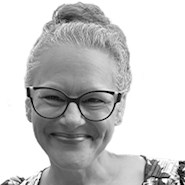By Catherine A. Cardno, Ph.D.
When Russia invaded Ukraine on Feb. 24, Jeffrey Sonnenfeld, senior associate dean and the Lester Crown professor of management practice at the Yale School of Management, and a research team of experts, research fellows, and students at the Yale Chief Executive Leadership Institute at Yale University in New Haven, Connecticut, began a list of companies’ responses to the hostilities.
What started as a basic spreadsheet first published the week of Feb. 28 and updated with information as companies announced their departures from — or decisions to remain in — Russia, has become an extensive website tracking the announcements and decisions of more than 1,000 global companies.
The Yale team now tracks five levels of withdrawal and has graded these categories on a school-style letter grade scale of A-F to indicate the completeness of the withdrawals. A permanent exit and clean break from Russia is designated as an A, with the scale moving down from that point to an F, issued to companies digging in and defying demands to reduce activities in Russia. The Yale team has found — and written about in an April 26 opinion piece for The Washington Post — that in the past two months companies that have curtailed operations in Russia have dramatically outperformed companies that have not.
Updated continually, the website is managed by a team of experts with backgrounds in financial analysis, economics, accounting, strategy, governance, geopolitics, and Eurasian affairs, it explains. The team has collective fluency in 10 languages and draws from a variety of datasets, including government regulatory filings, tax documents, company statements, financial analyst reports, and media articles from 166 countries as well as a network of 150-plus whistleblowers, company insiders, and executive contacts.
A handful of civil engineering, architecture, and construction companies have announced decisions to withdraw from Russia since the invasion.
American multinational engineering firm AECOM, a partner organization with ASCE, has ended its business relationships in Russia.
Architecture firms David Chipperfield, Foster + Partners, Herzog & de Meuron, MVRDV, and Zaha Hadid Architects have suspended their work in Russia.
Industrial technology company Trimble and software company Autodesk have suspended their business in Russia.
On the materials side, thyssenkrupp is scaling back its operations related to Russia, Nippon Steel is looking for alternate sources of raw materials, and Tata Steel has stopped sourcing materials from Russia.
German industrial manufacturing company Siemens has frozen its business in Russia, American construction and mining equipment manufacturing company Caterpillar has suspended its manufacturing in Russia, and U.S. manufacturer Boeing, a partner organization with ASCE, has suspended its business operations in Russia.
The research community has also issued messages of support for Ukraine. Statements of support have been issued by academies across the globe, including one by the European Federation of Academies of Sciences and Humanities, and a joint statement by the presidents of the U.S. National Academies.
In terms of donations, Caterpillar has announced donations to the American Red Cross, Project Hope, and the Center for Disaster Philanthropy, totaling $1 million to be used for urgent and long-term humanitarian aid in Ukraine.
The Offshore Technology Conference, an annual trade show that was founded in 1969 by 12 engineering and scientific organizations, including ASCE, announced on May 5 that it had pledged $25,000 to the International Federation of Red Cross for Ukraine relief.
ASCE reached out directly to its few members in Ukraine with a letter of support from its president, offered assistance, and ceased publication distribution negotiations in Russia.
“We (in the architecture, engineering, and construction industry) have an ethical obligation as professions to be intolerant of activities which harm individuals and communities,” says ASCE President Dennis D. Truax, Ph.D., P.E., DEE, D.WRE, F.NSPE, F.ASCE. Truax recently retired as the James T. White endowed chair, department head, and professor of civil and environmental engineering at Mississippi State University and as the director of the Mississippi Transportation Research Institute. “Working for those who cause harm makes us complicit in unethical behavior.”
“If a professional can’t change the situation, terminating all relationships with such entities becomes the only option,” Truax says. “Regarding the atrocities heaped on the Ukrainian people, many in our profession have exercised this option and ended ties with Russia. Others will hopefully follow suit soon.”



